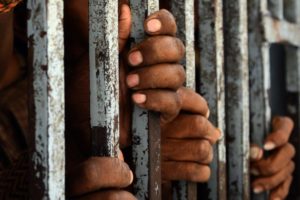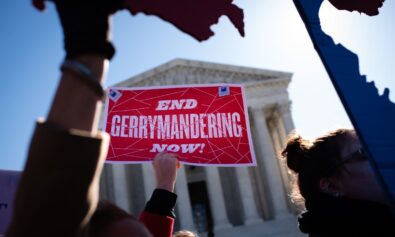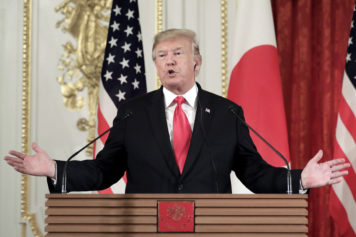Nearing the end of his term in office, President Obama is focusing on the problems facing the U.S. criminal justice system, and more generally is providing a clear vision of how to attack the major issues plaguing the Black community. He is addressing the issues that activists and leaders within the Black community have been discussing for years. But what happens to the momentum when he leaves office?
On Monday, the president commuted the sentences of 46 nonviolent drug offenders, bringing the total number of commutations in his presidency to 89. At this point, Obama has commuted more sentences than any president since Lyndon B. Johnson, and more than the last four presidents combined, as the Christian Science Monitor noted. This number, however, represents a small percentage of people who have applied for clemency from the president. In addition, on Thursday, he is preparing to visit El Reno Federal Correctional Institution in Oklahoma, making him the first sitting president in history to visit a prison.
These announcements from the White House came as President Obama delivered remarks before the NAACP National Convention in Philadelphia on Tuesday. In his speech, Obama connected the dots, arguing that mass incarceration has destroyed communities, and linking the injustice and racial bias in the criminal justice system to unrest in cities such as Baltimore and Ferguson. Further, arguing that prisons have gone too far in this country in locking up nonviolent offenders with draconian sentences, he discussed the need for reducing the prison population and cutting mandatory minimum sentencing, increasing opportunities for young men of color and restoring voting rights to those with a felony conviction.
Obama also addressed solitary confinement, and has called on his new attorney general, Loretta Lynch, to review the practice in federal institutions.
“The social science shows that an environment like that is often more likely to make inmates more alienated, more hostile, potentially more violent,” the president said. “Do we really think it makes sense to lock so many people alone in tiny cells for 23 hours a day, for months—sometimes for years—at a time? That is not going to make us safer.”
He also talked about the state of prisons, another point that has been at the forefront of debates.
“We should not tolerate conditions in prison that have no place in any civilized country,” President Obama said. “We should not be tolerating overcrowding in prison. We should not be tolerating gang activity in prison. We should not be tolerating rape in prison—and we shouldn’t be making jokes about it in our popular culture. That’s no joke. These things are unacceptable.”
The president pointed out that in recent years, people have opened their eyes to the truth as a result of cameras, tragedies and statistics that cannot be ignored.
“We can’t close our eyes anymore,” Obama insisted. “And the good news—and this is truly good news—is that good people of all persuasions are starting to think we need to do something about this.”
America’s war on drugs has created the world’s largest prison population, as the nation has 5 percent of the world’s population but a quarter of the world’s prisoners. One in 100 Americans is incarcerated, and as the Christian Science Monitor reported, the prison population has quadrupled in since 1980, even as crime has dropped.
Meanwhile, “tough on crime” policies have not reduced crime, but rather have financially crippled the budgets of state governments. Currently, a bipartisan consensus is emerging around the need for reform of the system—with some on the right interested in the issue from a fiscal or libertarian perspective—which is providing President Obama with the confidence to address the issue. Further, that the Koch Brothers are bankrolling criminal justice reform initiatives and partnering with the ACLU and other left-leaning groups provides political cover to Republicans and Democrats alike.
“There’s no feeling that he’s about to touch a third rail,” Sherrilyn Ifill, the president of the NAACP Legal Defense and Educational Fund, told the New York Times. “I don’t think he feels that way anymore.”
Despite, or perhaps because of the bipartisan support for ending mass incarceration, communities of color—those who are primarily impacted by prisons—must ensure that after President Obama leaves office, criminal justice reform continues. But there must be an eye towards racial justice.
Writing for In These Times, George Lavender expressed skepticism over the role of the Koch Brothers, who have spent millions of dollars supporting Republican political candidates, think tanks and groups who oppose criminal justice reform. There is concern from some critics that such wealthy donors will support legislative measures that will assist predominantly white, white-collar offenders, and leave out drug offenders who are disproportionately Blacks and Latinos.
“Over the years, the Kochs have deployed a small fortune to attack laws and public policies that protect society’s most vulnerable—the sick, the elderly, the working poor,” said Tia Lessin, co-director of the documentary, Citizen Koch. “This is the latest in a PR campaign to re-brand the billionaire extremists as men who care about ‘the disadvantaged.'”
Meanwhile at Slate, Leon Neyfakh suggests that the Koch Brothers want to have it both ways by supporting criminal justice reform and presidential candidate Scott Walker, the governor of Wisconsin, who “had passed one law after another that resulted in more people being sent to prison for longer.” Walker’s “law and order” stance is viewed by civil rights groups as a remnant of a bygone era. Further, Walker is known for his hostility to labor unions and worker’s rights, depriving public sector unions of their right to collective bargaining, and making it easier for employees to work a seven-day week.
Moreover, the governor’s voter suppression measures have disproportionately targeted people of color, according to civil rights groups. Walker has defended his state’s voter ID law, which has made it more difficult to vote, and impacts an estimated 300,000 voters, or 9 percent of voters, according to Advancement Project. As Buzzfeed reported, Walker also made cuts to early voting, consolidated polling places in some communities and slashed early voting.
When President Obama leaves the White House, the multiracial coalition fighting for racial justice, the protection of Black bodies, and against voter suppression and mass incarceration must also continue to lead on criminal justice reform.



